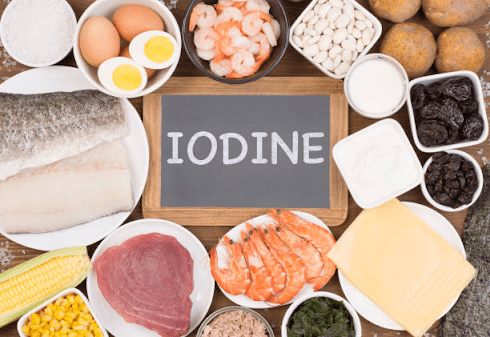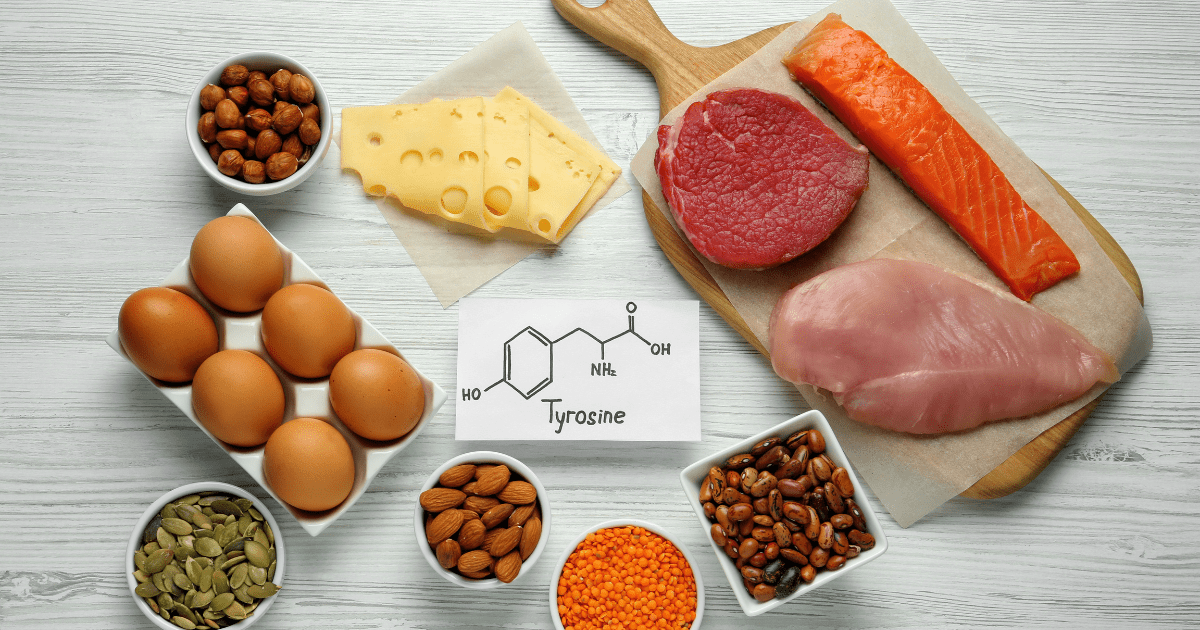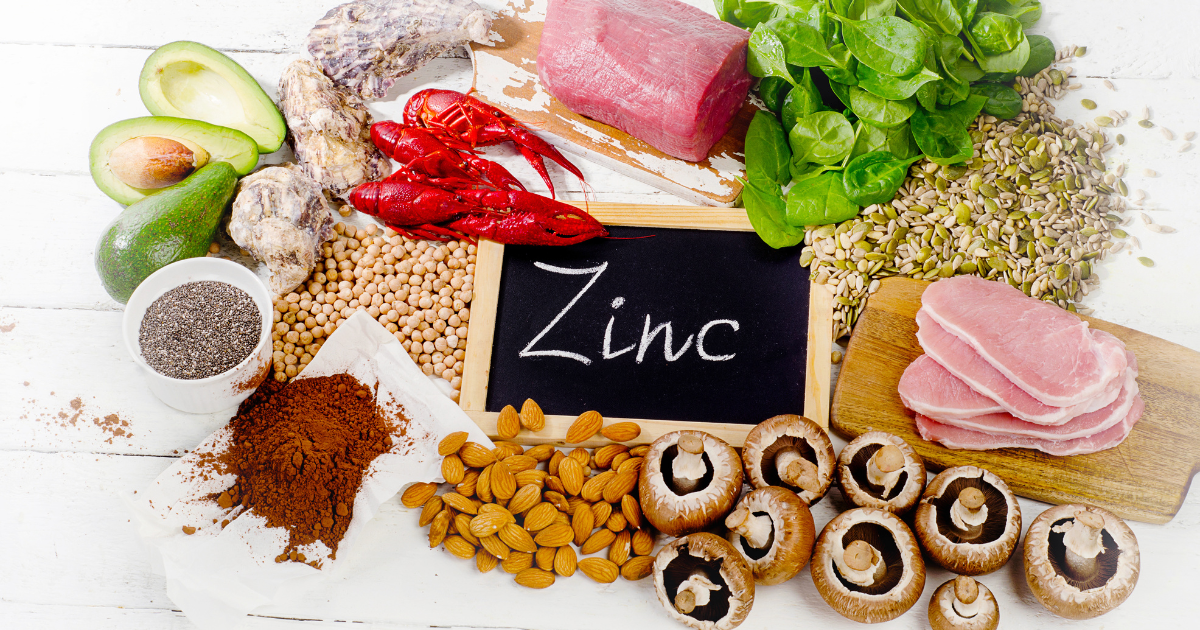
My life was turned upside down when I was diagnosed with hypothyroidism. My thick, lustrous hair started falling out, revealing a painful realization of my hormonal imbalance. I was no longer the vibrant person I used to be. These symptoms were the initial signs of hypothyroidism.
The effects of hypothyroidism on my body were relentless. I felt constantly lethargic and unmotivated, and despite not eating much, I started gaining weight rapidly. My self-confidence plummeted, forcing me to withdraw from social activities and isolate myself from the world.
Determined to regain stability and balance in my life, I sought new treatments. My doctor prescribed a new thyroid medication and bioidentical hormonal therapy. I also discovered the importance of a nutritious diet and a low-impact exercise program.
What I Learned About Hypothyroidism Supplements
I discovered specific supplements that support thyroid health such as selenium, zinc, iodine, magnesium, and vitamin D3. They helped me tackle some of the nutrient deficiencies that come with hypothyroidism and boosted my overall well being. These supplements became a part of my journey to a healthier life.
What is Hypothyroidism?
Hypothyroidism is a condition where the thyroid gland doesn’t produce enough thyroid hormones, leading to symptoms like fatigue, weight gain, dry skin, and depression. It affects millions of women worldwide, with women being about 10 times more likely than men to develop the condition.
Managing hypothyroidism is essential for overall health, and supplements can help improve symptoms, allowing women to regain control of their well-being.
Causes of hypothyroidism in women

- Autoimmune Disease: Autoimmune diseases occur when the body’s immune system mistakenly attacks healthy cells. In hypothyroidism, the immune system may mistakenly attack the thyroid gland, preventing it from producing enough hormones.
- Iodine Deficiency: Iodine is an essential mineral required to produce thyroid hormones. If a woman’s diet doesn’t contain enough iodine, her thyroid gland may not produce enough hormones.
- Medication: Some medications can interfere with thyroid hormone medication, including medicines for seizures, antibiotics, and antidepressants. It is essential to discuss any medications you are taking with a doctor, as alternative treatments may be available.
- Age: Hypothyroidism is more common in women over the age of 60. The thyroid gland naturally becomes less active with age, making it harder to produce enough hormones. It’s more likely in women who’ve had children, as pregnancy can cause changes to the thyroid gland.
- Gender: Gender plays a role in hypothyroidism. Women are more likely to develop hypothyroidism than men, particularly as they age. This may be due to hormonal changes during pregnancy, menopause, or other life stages.
- Postpartum hypothyroidism: Postpartum thyroiditis is a condition that affects some women after giving birth. It is characterized by thyroid gland inflammation, which causes it to become underactive and produce fewer thyroid hormones. Postpartum hypothyroidism usually occurs within the first year after childbirth, with symptoms appearing between three and six months.
- Genetics: Several genes have been identified as potential contributors to hypothyroidism, including genes involved in the production of thyroid hormones and genes that affect the body’s ability to absorb iodine, a key component in the production of thyroid hormones. Studies suggest that some gene variations may increase the risk of autoimmune thyroid disease.
The Role of Hypothyroidism Supplements
It’s important to understand that supplements can’t replace medical treatment for hypothyroidism. If you have hypothyroidism, you should always follow your doctor’s advice and take your prescribed medications. However, some supplements may be beneficial in helping to manage symptoms or even help to improve thyroid function.
Iodine

This is an essential mineral vital for metabolism, hormone production, and brain and nervous system development. Iodine is necessary for women, as it is a critical nutrient for healthy thyroid function. While various factors can cause hypothyroidism, iodine deficiency is among the most common causes of hypothyroidism in women.
It is a simple and affordable treatment for hypothyroidism. It is available in supplement form and food sources and can quickly replenish the body’s iodine stores. When taking iodine supplements, it is essential to note that too much iodine can adversely affect the body.
The recommended daily allowance of iodine is 150 mcg for adults, and women with hypothyroidism should talk to their doctor before taking any supplementation. It is also important to note that iodine is best absorbed when taken with selenium, so women with hypothyroidism should consider taking a supplement that contains both iodine and selenium.
Iodine is best absorbed with selenium, so women with hypothyroidism should consider a supplement containing both. By replenishing the body’s iodine stores, women with hypothyroidism can take a necessary step in restoring their thyroid health. However, talking to a doctor before taking this supplement is essential, as too much iodine can be harmful.
Selenium

This is a trace mineral that is necessary for the production of thyroid hormones. Studies have shown that supplementing with selenium can reduce the symptoms of hypothyroidism. This supplement works by increasing the activity of an enzyme called iodothyronine deiodinase, which converts the inactive form of thyroid hormone to its active format.
This helps the body to produce more thyroid hormone, which can improve symptoms of hypothyroidism. Selenium is found in various foods, including seafood, organ meats, eggs, and Brazil nuts. However, it can also be taken as a supplement in capsules, tablets, or liquid drops.The recommended daily allowance (RDA) of selenium is 55 mcg for adults. Research suggests that daily selenium supplementation in the 200-300 mcg range may benefit thyroid health, particularly in individuals with autoimmune thyroid conditions such as Hashimoto’s thyroiditis or Graves’ disease.
It’s important to talk to your doctor before taking a selenium supplement (selenomethionine), because it can have adverse effects if taken in large doses and can interact with certain medications, like anticoagulants or blood thinners, such as warfarin, and increase the risk of bleeding.
It interacts with chemotherapy drugs like cisplatin and carboplatin, reducing their effectiveness and causing adverse effects in large doses.
Omega-3 fatty acids

These are well known for their health benefits and may be important in treating hypothyroidism in women. They are found in various foods such as fish, walnuts, and flaxseeds, and are also available as supplements. These fatty acids are essential for proper body functioning, regulating hormones, and maintaining healthy cell membranes. Recent studies have found that Omega-3 fatty acids may be especially beneficial for women with hypothyroidism.
One study found that supplementing with Omega-3 fatty acids for six months improved thyroid hormone levels, which in turn improved symptoms of hypothyroidism. Another study found that supplementing with Omega-3 fatty acids improved mood, memory, and concentration in women with hypothyroidism.
These studies suggest that Omega-3 fatty acids may be an effective supplement for the treatment of hypothyroidism in women. However, it is important to consult a healthcare professional before starting this supplement, as optimal dosage is studied.
Tyrosine

This is an amino acid that is found naturally in the body and is essential for the production of the hormones produced by the thyroid gland. When tyrosine levels are low, it can lead to decreased production of hormones, leading to the symptoms associated with hypothyroidism in women.
Taking tyrosine supplements can help to increase the levels of this amino acid in the body, allowing the thyroid to produce more hormones and helping to relieve the symptoms of hypothyroidism. In addition to helping to increase hormone production, studies have also found that tyrosine may help to improve mood and cognitive function in women with hypothyroidism.
This is likely due to its ability to increase levels of dopamine and norepinephrine, two important neurotransmitters that are responsible for regulating mood and cognitive function. While tyrosine is a relatively safe supplement, it is important to speak with your doctor before taking any form of supplementation. Your doctor can help to determine the right dosage for your individual needs and make sure that the supplement is safe for you to take.
Vitamin B12

This supplement plays an important role in the body’s metabolism. It helps to break down carbohydrates, proteins, and fats, and is also necessary for the production of red blood cells. In addition, it is involved in the production of thyroid hormones. When levels of Vitamin B12 are low, it can lead to a decrease in the production of thyroid hormones, which can result in symptoms of hypothyroidism.
Studies have shown that supplementing with Vitamin B12 can help to improve the symptoms of hypothyroidism in women. In a recent study, women with hypothyroidism who took a daily supplement of Vitamin B12 experienced a significant reduction in their symptoms. They also experienced an increase in energy levels, as well as an improvement in mood and concentration.
This supplement can be found in various foods, including beef liver, salmon, tuna, fortified cereals, and bread. However, women with hypothyroidism may need to take a supplement to get enough of the vitamin. The most stable form of Vitamin B12 is Cyanocobalamin. These supplements are available in tablet, capsule, and liquid form, and can be purchased without a prescription. For women with hypothyroidism, taking a Vitamin B12 supplement can be a safe and effective way to help manage the condition.
Zinc

This is an essential trace mineral that plays a crucial role in various bodily functions, including the production of thyroid hormones. It metabolizes carbohydrates and amino acids, which are essential for healthy thyroid function. Recent studies have also demonstrated that zinc supplementation can significantly improve thyroid hormone levels in women with hypothyroidism, as well as alleviate symptoms such as fatigue, depression, and hair loss.
Benefits of taking hypothyroidism supplements
Living with hypothyroidism can be a challenging experience. It can cause a range of unpleasant symptoms like fatigue, depression, and weight gain and can make it difficult for you to do the things you enjoy. Fortunately, there are many natural supplements that can help you manage your hypothyroidism, and here are some of the benefits they can provide.
- Increased Energy: One of the most common problems with hypothyroidism is fatigue, and taking certain supplements can help boost your energy levels. For example, tyrosine is an amino acid that can help increase your energy levels, while iodine is an important mineral for thyroid health. Both of these are available in supplement form and can help you feel more energized and alert.
- Improved Mood: Hypothyroidism can also cause depression and mood swings, which can make it difficult to enjoy activities and socialize with others. Taking supplements like omega-3 fatty acids and vitamin B12 can improve your mood and help you get through the day.
- Weight Loss: Many people with hypothyroidism struggle with weight gain, and this can be especially true if you’re not getting enough of the essential vitamins and minerals your body needs. Taking supplements like selenium, zinc, and vitamin D-3, which is the most absorbable form of vitamin D, can help boost your metabolism, and make it easier to shed extra pounds.
- Reduced Inflammation: Hypothyroidism can cause inflammation in the body, which can lead to joint pain, headaches, and other uncomfortable symptoms. Taking supplements like turmeric and ginger can help reduce inflammation, making it easier to move and be active.
- Enhancing immune function: Hypothyroidism can weaken the immune system, leaving individuals more susceptible to infections and illnesses. Supplements such as vitamin C, zinc, and probiotics, liposomal glutathione, alpha lipoic acid can help support immune function glucose control and reduce the risk of infections.
- Supporting overall health: Many of the supplements that are beneficial for hypothyroidism also have general health benefits. For example, omega-3 fatty acids have anti-inflammatory effects and can help reduce the risk of heart disease and arthritis. If you have hypothyroidism, you might be looking for the right supplement to help manage your condition. But with so many options on the market, it can be difficult to know which one is best for you. The first step in selecting a supplement is to talk to your doctor.
How to choose the best form for each hypothyroidism supplement
Different forms of supplements may have varying bioavailability or absorption rates.
- Check for purity and safety: If you are taking fish oil supplements for omega-3s, look for products sourced from wild fish and purified to remove contaminants like heavy metals and PCBs.
- Avoid harmful additives and fillers: Check the ingredients list on supplements and avoid products that contain unnecessary fillers, additives, or artificial colors and flavors.
- Read the label carefully: Only take a supplement containing ingredients proven to be safe and effective for treating hypothyroidism.
- Consider your budget: it’s important to consider your budget when selecting a supplement. You may find that some supplements are more expensive than others, but it’s important to remember that quality matters. Be sure to select a reputable company´s supplement that contains quality ingredients.
- Talk to your doctor: They can advise which type is most appropriate for you and your condition. Also, your doctor helps you determine the right dosage. Your doctor may also recommend a combination of supplements, so it’s important to get their input before making any decisions. After speaking with your doctor, thinking carefully about the supplement’s components is crucial.
- Read the label carefully: Only take a supplement containing ingredients proven to be safe and effective for treating hypothyroidism.
Recommended supplements for women with hypothyroidism
1. Vitamin D: Vitamin D deficiency is common among people with hypothyroidism, and supplementation may improve thyroid function and reduce symptoms. The most effective form of vitamin D for supplementation is Vitamin D-3 (cholecalciferol), as it is the natural form of vitamin D that the body produces in response to sunlight and is more efficiently absorbed.
2. Magnesium: When it comes to addressing thyroid problems, magnesium supplementation has shown promising results. Magnesium is a vital mineral that participates in numerous enzymatic reactions in the body. In particular, studies have shown that specific forms of magnesium, such as magnesium citrate, magnesium glycinate, and magnesium threonate, may offer unique benefits for individuals with hypothyroidism.
- Magnesium glycinate: This unique form of magnesium can cross the blood-brain barrier and boost cognition.This form is known for its gentle, calming effects, making it suitable for those with digestive
- Magnesium threonate: This is a unique form of magnesium thanks to its remarkable capability to cross the blood-brain barrier and potentially boost cognitive function.
- Magnesium Citrate: Studies have shown that magnesium citrate supplementation may help improve thyroid function by supporting the conversion of thyroid hormone (T4) to active thyroid hormone (T3), essential for regulating metabolism. Additionally, magnesium citrate may help reduce inflammation and oxidative stress.
3. Ashwagandha: Ashwagandha is an adaptogenic herb that has been shown to improve thyroid function and reduce symptoms of hypothyroidism.
4. Probiotics: Probiotics can improve gut health and reduce inflammation, benefiting those with autoimmune thyroid conditions.
5. Alpha-lipoic acid: This antioxidant reduces inflammation and improves insulin sensitivity, benefiting those with autoimmune thyroid conditions.
6. Liposomal Glutathione: Glutathione is a powerful antioxidant that helps protect cells from damage and reduce inflammation. Supplementing with liposomal glutathione can improve glutathione levels and support thyroid health.
7. Liposomal Vitamin C: It is an important antioxidant that supports immune function and reduces inflammation ( highly observable).
Conclusion
For managing hypothyroidism, supplements can be beneficial but should accompany other treatments like medication, diet, and lifestyle changes. To ensure safety and effectiveness, it’s important to select high-quality supplements from reliable sources, follow the recommended dosages, and have regular blood tests to monitor thyroid function.
Eating a balanced diet rich in nutrient-dense foods like iodine, selenium, magnesium, zinc, and omega-3s supports thyroid function. Lifestyle habits like stress management, exercise, and adequate sleep can improve overall health and thyroid function. Supplementation is one part of a comprehensive plan for managing hypothyroidism; work with a healthcare team for informed decisions.
References
- American Thyroid Association. (2020). Hypothyroidism. https://www.thyroid.org/hypothyroidism/
- Elizabeth S.B (2019) https://www.everydayhealth.com/hs/healthy-living-with-hypothyroidism/vitamins/
- Mayo Clinic. (2021). Hypothyroidism. Retrieved from https://www.mayoclinic.org/diseases-conditions/hypothyroidism/symptoms-causes/syc-20350284
- Mayo Clinic Staff. (2020). Hypothyroidism. Mayo Clinic. https://www.mayoclinic.org/diseases-conditions/hypothyroidism/diagnosis-treatment/drc-20352967
- National Institutes of Health. (2020). Hypothyroidism. Retrieved from https://www.niddk.nih.gov/health-information/endocrine-diseases/hypothyroidism
Thanks for shedding light on ‘Hypothyroidism Supplements for Women.’ It’s an important topic that many of us need to navigate. While supplements can be beneficial, it’s crucial to remember they’re not a substitute for prescribed medication. Consulting a healthcare professional is vital to finding the correct dose and determining if they are beneficial for our case. Remember to take breaks and undergo regular testing to monitor nutrient levels and avoid potential health risks. Keep up the informative posts!